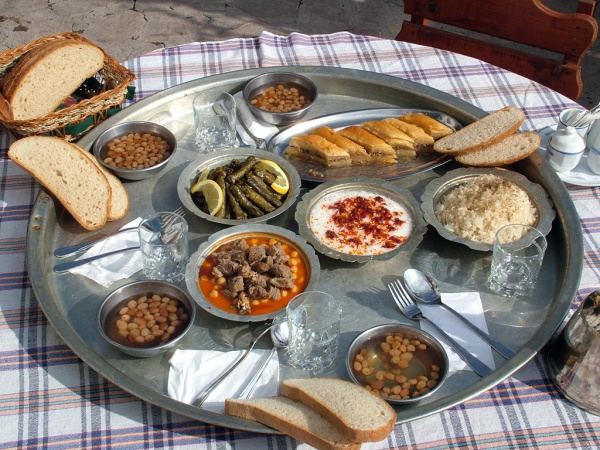Facts About Turkish cuisine
Turkish cuisine is a vibrant and diverse culinary tradition that beautifully reflects the rich tapestry of cultures and regions it has embraced over the centuries. Its roots extend back to Ottoman cuisine, incorporating elements from Central Asia, the Middle East, the Mediterranean, Eastern Europe, Armenia, and the Balkans. This profound culinary heritage has also influenced the neighboring cuisines of Southeast, Central, and Western Europe.
The flavors and dishes of Turkish cuisine vary significantly across the country. In cities like Istanbul, Bursa, and Izmir, as well as the Asia Minor region, influences from the Ottoman court prevail, featuring lighter spices, rice dishes, köfte (meatballs), vegetable stews, eggplant dishes, and an array of fish. The Black Sea Region is renowned for its fish, particularly the Black Sea anchovy, while the southeastern part of Turkey is celebrated for its kebabs, mezes (appetizers), and delectable desserts like baklava.
Olive oil is a staple in western Turkey, thanks to the abundance of olive trees. The Aegean, Marmara, and Mediterranean regions are known for their rich, vegetable-heavy dishes, aromatic herbs, and fresh fish. Central Anatolia offers unique specialties such as keşkek (a wheat and meat dish), mantı (Turkish dumplings), and gözleme (stuffed flatbread). Meat-based dishes like kebabs, meatballs, and stews also play a key role in Turkish cuisine, often accompanied by rice, vegetables, and bread.
Turkish culinary customs include a hearty breakfast tradition with items like cheese, olives, eggs, and pastries. Homemade meals are cherished, typically starting with a comforting soup, followed by a main course featuring vegetables, meat, or legumes. Turkish restaurants offer a broad spectrum of traditional dishes, with many local specialties named after their regions or cities of origin.
When it comes to beverages, rakı, a popular alcoholic drink, is often enjoyed, while Turkish tea and coffee are daily staples. Non-alcoholic options include ayran (a yogurt-based drink), şalgam suyu (fermented turnip juice), boza (a fermented cereal drink), salep (a warm, milky drink made from orchid tubers), and limonata (lemonade).
Desserts hold a special place in Turkish cuisine, with beloved treats like baklava, künefe (a cheese-filled pastry), muhallebi (milk pudding), and halva (a sweet made from tahini or semolina). Street foods are also a significant part of the culinary landscape, featuring delights like dondurma (Turkish ice cream), kokoreç (grilled lamb intestines), and fish sandwiches.

 Syria
Syria